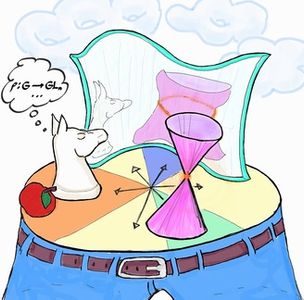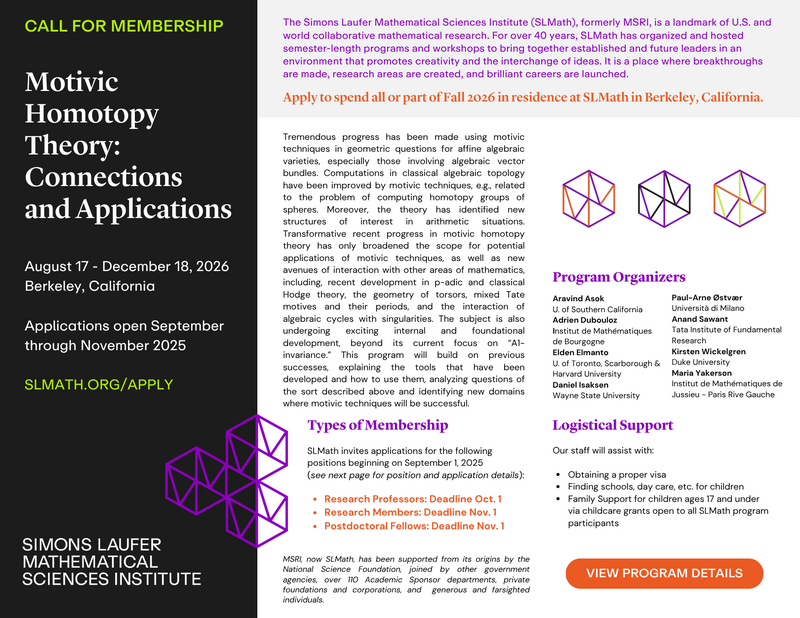Non-Positive Curvature Group Actions and Cohomology
Date: 3 January - 23 June 2017
Location: Isaac Newton Institute
Event type: Extended Format
Organisers: Cornelia Drutu (Oxford), Goulnara Arzhantseva (Vienna), Alessandra Iozzi (ETH), Nicolas Monod (EPFL)
This programme is about aspects of non-positive curvature as they occur in various research areas of contemporary mathematics, such as the geometry of manifolds, including those arising from Lie group theory; synthetic geometry (e.g. CAT(0) geometry) as used notably in modern group theory; coarse geometry, a fundamental tool of contemporary topology; non-commutative geometry; and algebra.
By combining and comparing the aspects that non-positive curvature displays in various contexts, the programme aims to acquire new insight and find meaningful new directions to explore. Among the tools used to uncover new aspects of non-positive curvature one numbers cohomology, originally a tool from algebra and topology and now a research field in itself, with countless applications throughout mathematics; perturbation stability — investigating when small “errors” lead to completely new structures, or when, on the contrary, structures are robust when perturbed;fixed point and proper actions – a topic at the interface of analysis and algebra – with surprising ramifications in many other areas; and CAT(0) and coarse geometry, where CAT(0) cubical and large-scale techniques come into play to solve problems from topology and algebra. All these fields are on the cutting edge of current research, and have fruitful connections to other areas, e.g. theoretical computer science.
Professor Emmanuel Breuillard (Paris Sud) has been appointed as a Clay Senior Scholar from January to June 2017 to particpate in this program.
Image: Ma10024, Wikimedia Commons
Related events
See all events
Knotted Surfaces in Four-Manifolds
Park City Mathematics Institute

p-adic Kudla Program and p-adic Automorphic Forms
CIRM

Representation Theory Under the Influence of Quantum Field Theory
Simons Laufer Mathematical Sciences Institute

Motivic Homotopy Theory: Connections and Applications
Simons Laufer Mathematical Sciences Institute